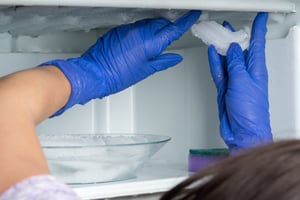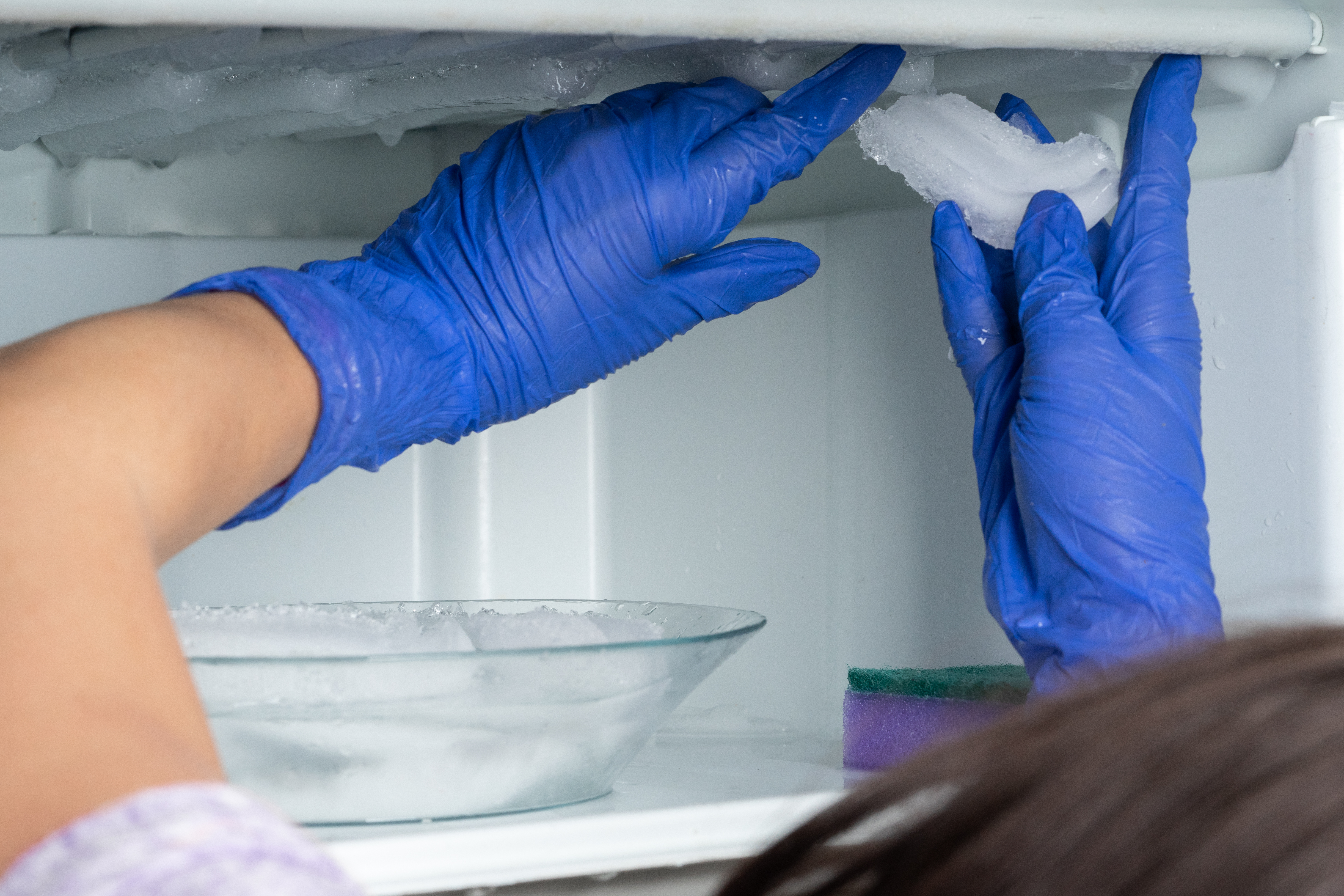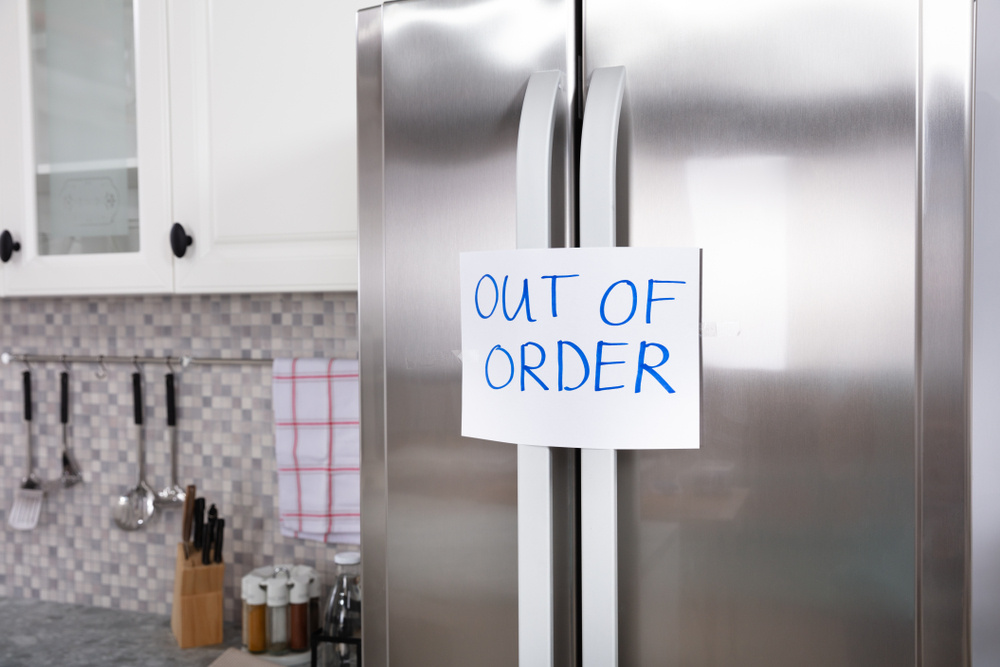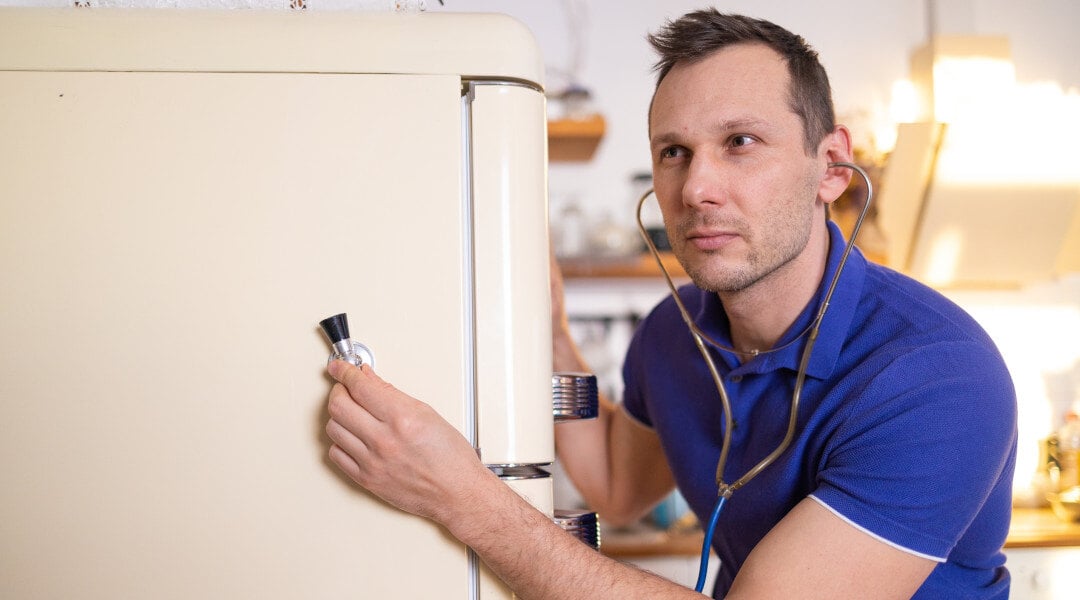Freezers are supposed to make ice.
However, freezers nor refrigerators are supposed to freeze up. It seems counter intuitive, but, alas, they sometimes do freeze up and need to be defrosted.
Why does your freezer or refrigerator keep getting iced up? Let's look at how to determine why this is happening, how to stop it or fix it once it happens, and how you might protect yourself from these kinds of repair costs.
Sign up for our Blog!
Isn't ice just ice? Nope.
First you must determine what kind of ice is forming before you can figure out why.
There are two kinds of ice that can form in a freezer or refrigerator freezer.
The first type of ice is clear ice, while the second is frost ice.
Clear ice is what you make in an ice tray. It may have a cloud of air in the middle, but it is clear and hard around the edges.
The other kind of ice is frost ice. It is what you can see in the North or South Pole. It is white and not clear at all. It is created when a snow layer forms on top of the ice layer, creating a thick built-up chunk of condensed snow forming ice.
If you have clear ice accumulating, it is usually in the refrigerator compartment. That's caused by water freezing in the unit. So, to stop it from forming, you must figure out where it is coming from.
How do you figure out where the water is coming from?
Check the drain line first. The drain line is the biggest culprit of this kind of ice build-up. If the drain is clogged, the water from the freezer or refrigerator compartment will back up and freeze. ICE!
Use a small brush on a long wire to push the clog through the drain line. That should clear the line and stop the standing water from freezing.
When it snows...
Snow ice can be harder to get rid of. If you have snow ice or frost build-up in the unit, it is caused by thermodynamics. In other words, humidity! When you open the freezer, the cold air escapes, and warm air replaces it. The moisture in the air condenses and freezes, causing the snow-like frost in your unit. However, this is unlikely caused by opening the freezer too much. It's most often caused by a bad seal or ice dispenser flapper allowing warm air to get into the freezer and freeze.
So, how, might you ask, can you determine the cause of the snow ice?
1. To determine the cause of the snow ice, check the seal on your refrigerator or freezer.
 Hey buddy, got a dollar?
Hey buddy, got a dollar?
Good! Take that dollar and close it in the door of either the freezer or refrigerator and try to pull it out.
If the dollar grows taunt and a little difficult to pull out, the seal is good in that section of the door. Do this all around the door. If there is a section of the seal that is too easy to pull the dollar out of, then that section of the seal is bad and letting warm air into your unit, causing frost build-up or snow ice.
2. Next, check the flap on your ice dispenser.
Get a glass of water from the tap. Open the door containing the flap on the dispenser and pour the water into the ice shoot where the ice travels to the flap. If the flap is good, no water will spill out of the flap and it will stay in the door until you close it and call for ice. Hopefully, you called for ice with a glass that could hold the amount of water you poured in. Really, though, if the flap is bad, get a mop and clean your floor! The water will leak out of the flap and if you didn't have a glass at the ready, you'll need the mop too.
Other ways your freezer unit could collect ice.
If your unit is not defrosting properly, it will cause a buildup of ice in the freezer. Over time you will have snow ice all over the back wall of your freezer.
Modern, electronic controlled units allow you to check this function by putting the freezer into defrost mode. When you do this, it should melt the ice and let the water go down the drain. If it does not, you need to call a service provider. Your unit isn't defrosting and the provider can get the correct parts and install them. Doing this test every 6 months should alert you of any issues before they become a repair problem, and avoid your evaporator fan from freezing up and dying.
How to protect yourself from repair costs.
Knowing why your freezer or refrigerator freezes up, and how to spot the issue before it becomes a problem is great information. However, if the unit does fail, and the average cost is about $348 for this sort of thing, you will need to pay to have it fixed unless you're a handy person that's comfortable doing home repairs. If not, a home warranty can protect your appliance and pay for the cost of the repair. Home warranties cover mechanical breakdowns of covered products. They typically cover your home products and systems for 1- 5 years, and can be purchased all at once as an annual plan, or as a monthly or quarterly subscription. Look for a home warranty provider that's insured by a top-rated insurance company, so that they're around when you need them. Make sure the home warranty company is run by people that understand how to provide product service and that use technology and an expert service network to make your life as easy as possible! Protect yourself from appliance repair costs. Check out options for home warranties by clicking the button below!
Learn more about fixHomz’s home warranty plans, extended warranty plans for electronics, and on-demand home services from fixHomz.




.jpg)
.jpg)



.jpg)

